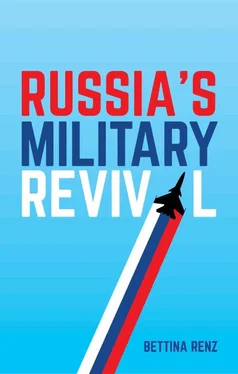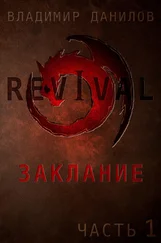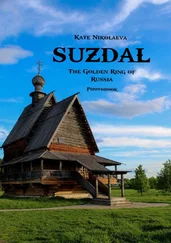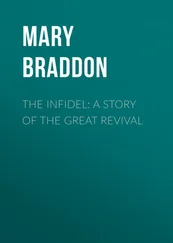Reactions to Russia’s military revival
For much of the post-Soviet era, it appeared clear that Russia’s days as a serious global military player were over for good. Even throughout the troubled 1990s, Moscow had maintained one of the world’s largest nuclear arsenals. This continued to give it some of the prestige and privileges afforded to military great powers, such as a permanent seat on the UN Security Council. However, in an age of small wars and insurgencies, where state-on-state warfare appeared to be a thing of the past, a strong nuclear deterrent alone was increasingly seen to be of little more than symbolic value. Within the former Soviet region, Russia always remained by far the most dominant military actor. It used this strength with impunity there in various conflicts since the early 1990s. Operations beyond this region, however, were largely outside of the realm of its possibilities, and its conventional capabilities were no match for the much more advanced militaries of the West. International views of Russia’s military, as a mere shadow of its former Soviet self, changed almost overnight with the annexation of Crimea. Surprise turned into awe as the operations in Syria unfolded. These not only showed that the country’s military capabilities had dramatically improved. They also demonstrated that Moscow was now confident and willing to use military force to pursue its interests on a global level, irrespective of strong condemnation by the West. What marks the military revival as a significant turning point in post-Cold War global security is the fact that, for the first time since the collapse of the Soviet Union, a militarily resurgent Russia is seen as a threat not only to its neighbours, but also to the West.
Russia’s military aggression against Ukraine in 2014 took most countries by surprise (House of Lords 2015: 6). As Viatcheslav Morozov wrote, it ‘created a shockwave in the European security system. It suddenly became apparent that certain key rules of international conduct in Europe could no longer be taken for granted’ (2015: 26). There was a sense that the Kremlin’s actions were the result of a relatively sudden and dramatic change in foreign policy – a ‘paradigm shift’ – which, enabled by a revived military, signified a ‘seismic change in Russia’s role in the world’ (Rutland 2014). Having previously paid little attention to the extensive modernization the Russian armed forces had been undergoing for some time, questions started being asked by many observers and officials in the West about the purpose of this undertaking. Many believed that the only explanation for the Kremlin’s efforts to strengthen the country’s military capabilities was the intention to engage in further aggressive action. As Jonathan Masters wrote for the US think tank, the Council on Foreign Relations, ‘the Russian armed forces are in the midst of a historic overhaul with significant consequences for Eurasian politics and security’ (2015).
To many observers, Putin’s intentions seemed to be crystal clear. Most immediately, the ‘paradigm shift’ in the Kremlin’s ambitions posed a threat to Ukraine, where the annexation of Crimea was only the beginning. In late March 2014, US intelligence officials reportedly cautioned that the probability of a full invasion of Ukraine ‘was very high’ (Gover 2014). A year after the annexation, some analysts were still convinced that Putin was driven by the desire to gain more territory. As Hans Binnendijk, a senior fellow at the Johns Hopkins Center for Transatlantic Relations, and John Herbst, a former US ambassador to Ukraine, wrote about Putin in the New York Times , ‘his long term goal may be the creation of “Novorossiya”, or New Russia, which would constitute all of southern Ukraine past Odessa to Moldova, and would enable Russia to control the entire northern coast of the Black Sea. There are no large armies to stop him’ (Binnendijk and Herbst 2015). Many believed that ‘Russia’s military buildup is a harbinger of neo-imperial expansion’, where the annexation of Crimea was merely a first stroke of the brush on a vast canvas (Ramani 2016). As former US Secretary for Defence Leon Panetta put it, ‘Putin’s main interest is to try and restore the old Soviet Union. I mean, that’s what drives him’ (quoted in CSIS 2016).
Fears were also expressed that, what many saw as the Kremlin’s new expansionist vision, might extend much further and even NATO territory might not be off limits. The Baltic States were seen to be particularly threatened by this. As a journalist writing for the UK broadsheet the Daily Telegraph asserted, if Putin ‘concludes that his adventure in Ukraine has served Russia’s interests, then he will turn on new targets – and the trio of countries along the Baltic coast would probably be next’ (Blair 2015). The US military analyst and Russia expert, Stephen Blank, in 2016 was ‘counting down to a Russian invasion of the Baltics’. The British Defence Secretary, Michael Fallon, also believed that there was a ‘clear and present danger’ that the Baltic States would be Moscow’s next target (Farmer 2015).
The Kremlin’s aggressive use of its improved armed forces in Crimea was seen by many not only as a danger to Russia’s immediate neighbours, but to the whole of Europe, and even to the United States and international security at large. As then-US Defense Secretary Chuck Hagel asserted in November 2014, Russia had been investing in its armed forces ‘to blunt our military’s technological edge… If this capability is eroded or lost, we will see a world far more dangerous and unstable, far more threatening to America and our citizens here at home than we have seen since World War II’ (2014a). Gustav Gressel, writing for the European Council on Foreign Relations, noted that Europe was in need of finding a response to ‘Russian expansionism’. Although he conceded that ‘a major escalation’ on the European continent was ‘not imminent’, urgent action was required, because ‘Russia is clearly preparing itself for offensive operations’ (2015: 1, 13). In the words of Damon Wilson, a former national security aide to President George W. Bush, ‘Putin just declared war on the European order and it’s demanding that the United States focus on Europe again as a security issue’ (quoted in Shear and Baker 2014).
When Russia launched its first airstrikes in Syria in autumn 2015, this affirmed in the eyes of many observers that a militarily resurgent Russia posed a security threat of global dimensions, as Putin continued his ‘power play’, this time in the Mediterranean (K. Johnson 2015). As the former secretary general of NATO, Anders Fogh Rasmussen, wrote in spring 2016, ‘we should hold no illusions about Moscow’s intentions… The clash is not only taking place in our shared neighbourhood. Moscow clearly aims to undermine the liberal international order and Western unity that has served us well since the end of World War II’. An article in The National Interest asserted that ‘Russia’s ongoing military buildup in Syria poses a serious challenge to American policy in the region’ (Graham 2015), others interpreted Moscow’s ‘unanticipated military foray into Syria’ as a ‘proxy US-Russian conflict’ (Stent 2016: 106). A journalist writing for the New York Post believed that Putin was intent not only on supporting the regime of Syrian President Bashar Assad, but on controlling Syria as a whole: ‘The Syrian coast will become another Crimea, if not completely annexed, at least occupied… Putin has arranged it so that no matter what happens in Syria, he wins – and we lose’ (Taheri 2015). In a strategy paper issued by the United States European Command in October 2015, a ‘revanchist Russia’ was listed as the top threat to European security, to the US homeland and to global stability (Breedlove 2015: 1). In 2016, Polish Prime Minister Antoni Macierewicz called Russia ‘the biggest threat to global security today’ (Sharkov 2016).
Читать дальше












